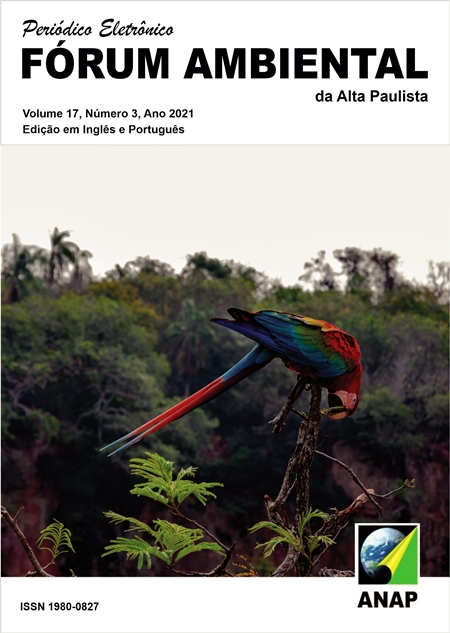Access to water and sanitation in brazilian regions
DOI:
https://doi.org/10.17271/1980082717320213040Palavras-chave:
Water. Sanitation. Waterborne diseases.Resumo
The lack of urban planning combined with the disorderly occupation of large urban centers results in the lack of sanitation services. This condition generates harmful impacts on social well-being and natural resources. The water crisis in Brazilian regions imposed by the serious pollution of water bodies triggers a series of conflicts related to water scarcity and multiple uses. The present study aims to verify the consequences in the generation of diseases in the face of sanitation conditions in Brazilian regions. The method used in this work is descriptive with a qualitative approach. Indicators related to the share of the population with access to water and sewage collection and hospitalizations due to waterborne diseases in the Brazilian regions were analyzed. The sanitation indicators are intended to measure the impacts generated and provide information that can help in the management and sustainable use of water resources in order to establish priority actions for public policies. As a result, it is observed that the issue of universal sanitation that emerges from this discussion should be of interest to the national policy agenda, considering the negative externalities arising from the lack of this service. This argument is based on promoting the dignity of human life as advocated by the 2030 Agenda. It is important to highlight the implications of the precariousness of access to water and sanitation in the context of productive activities and income generation, since the health of workers in the regions most deprived of these services tends to be precarious.












